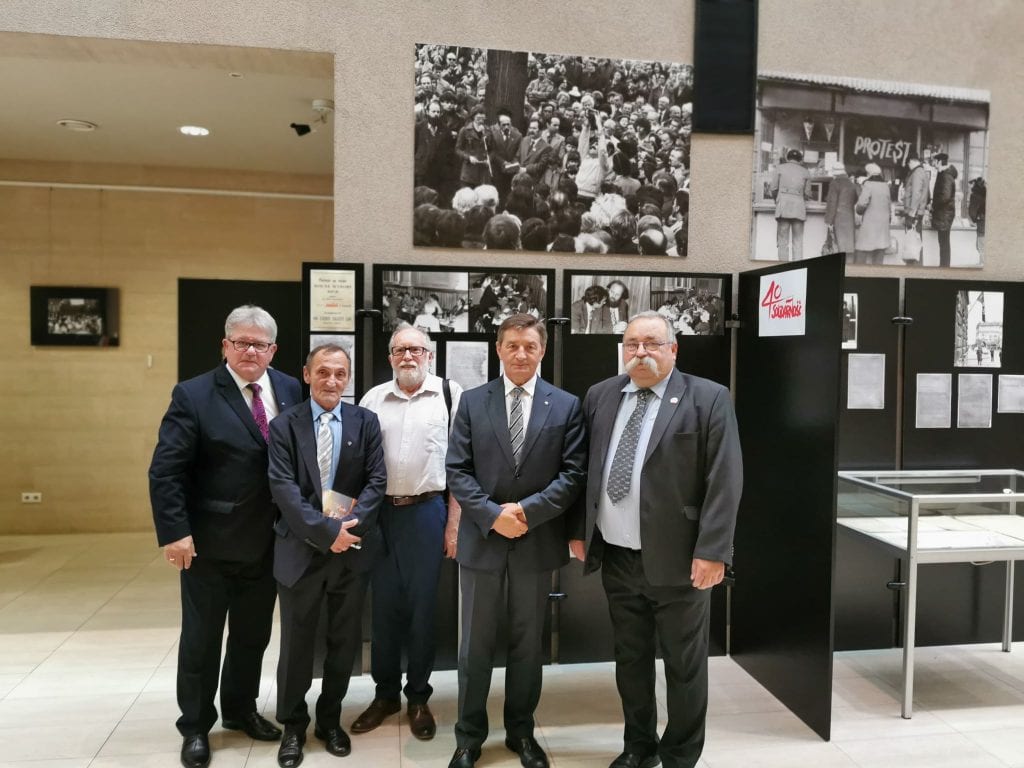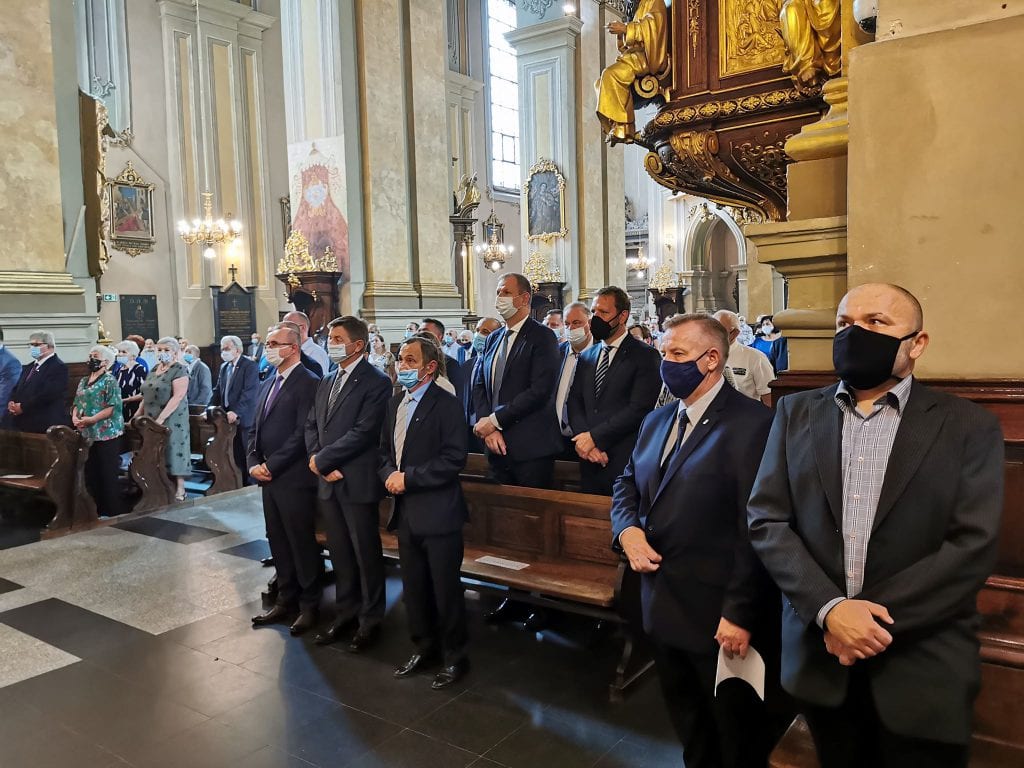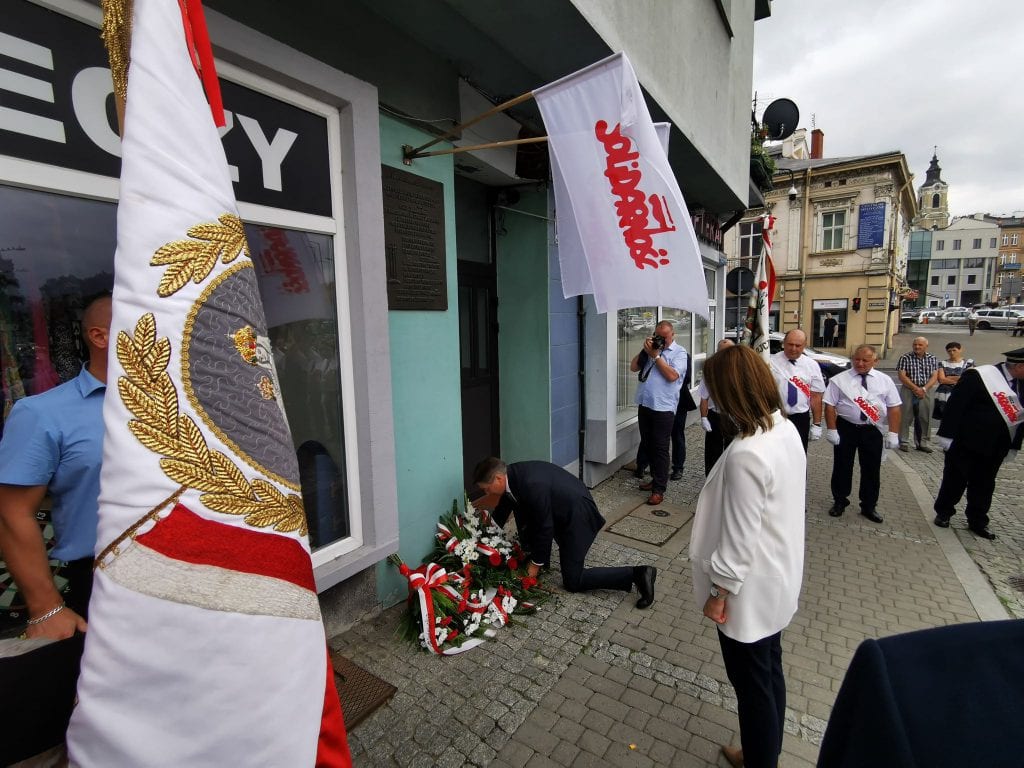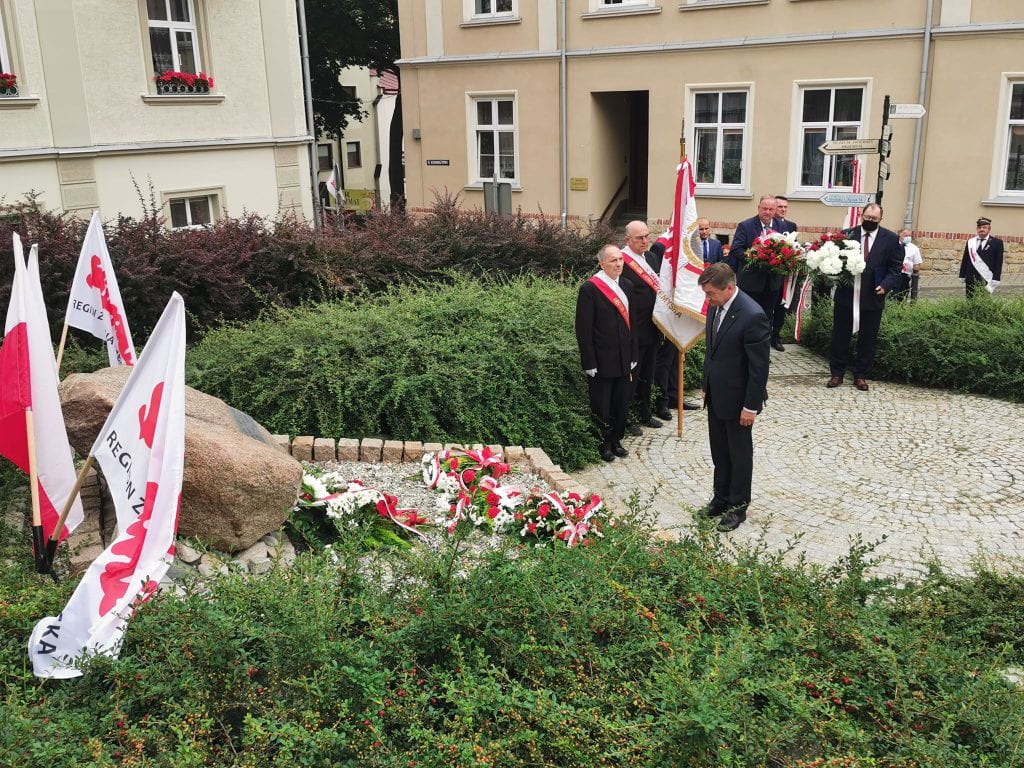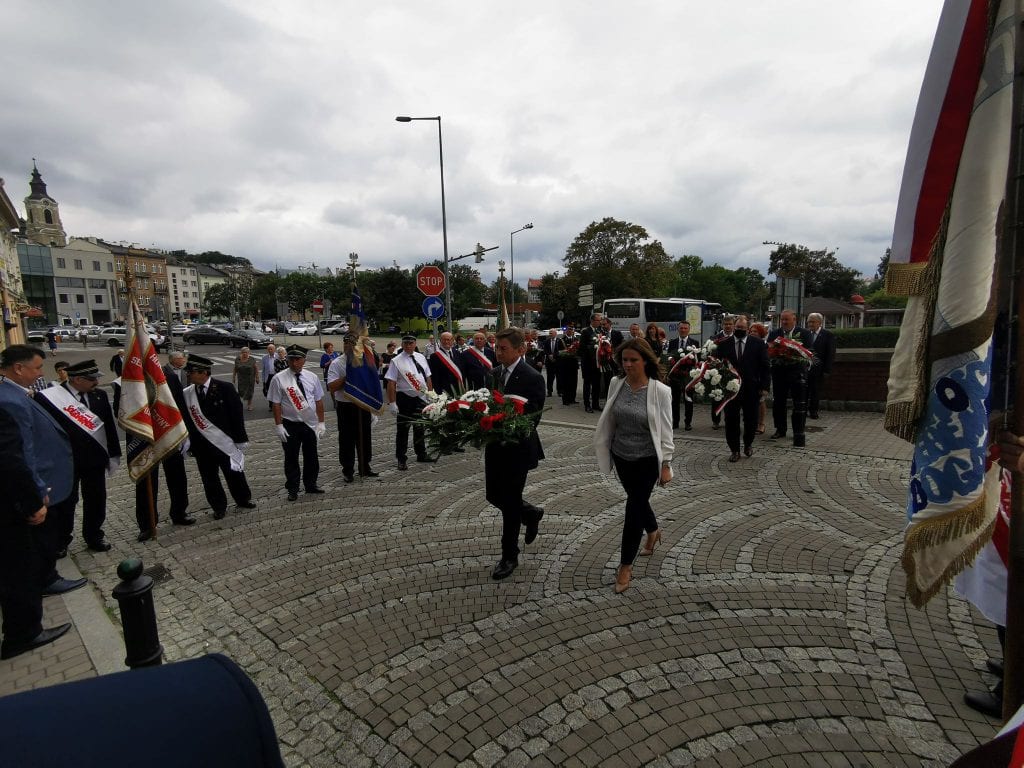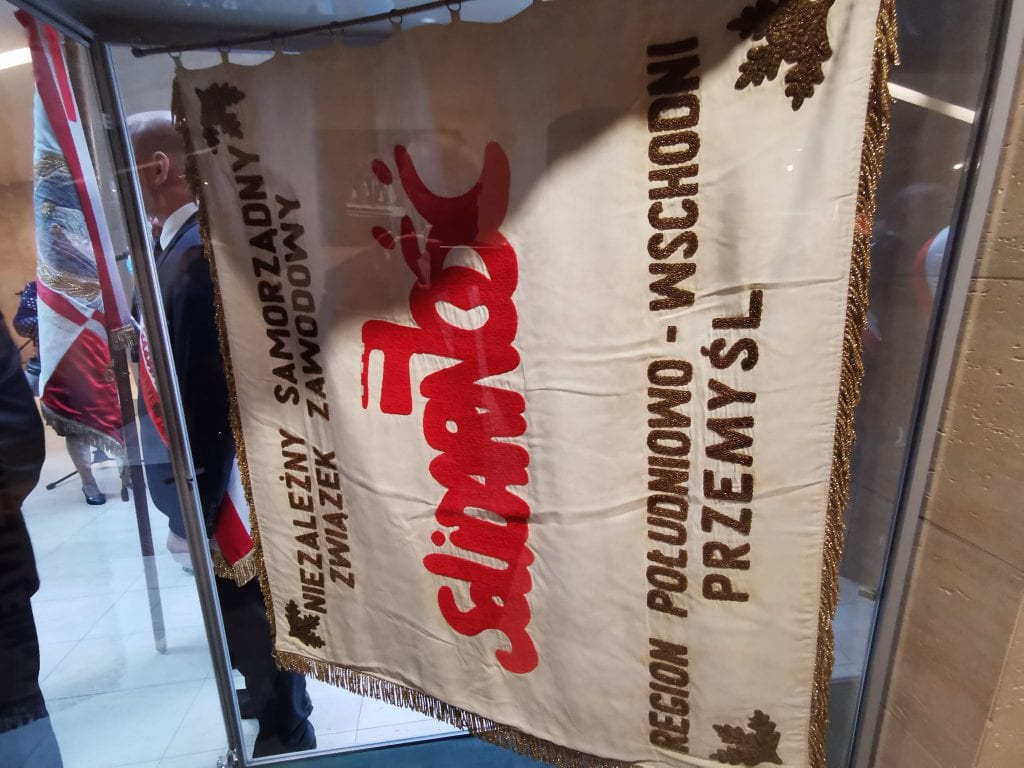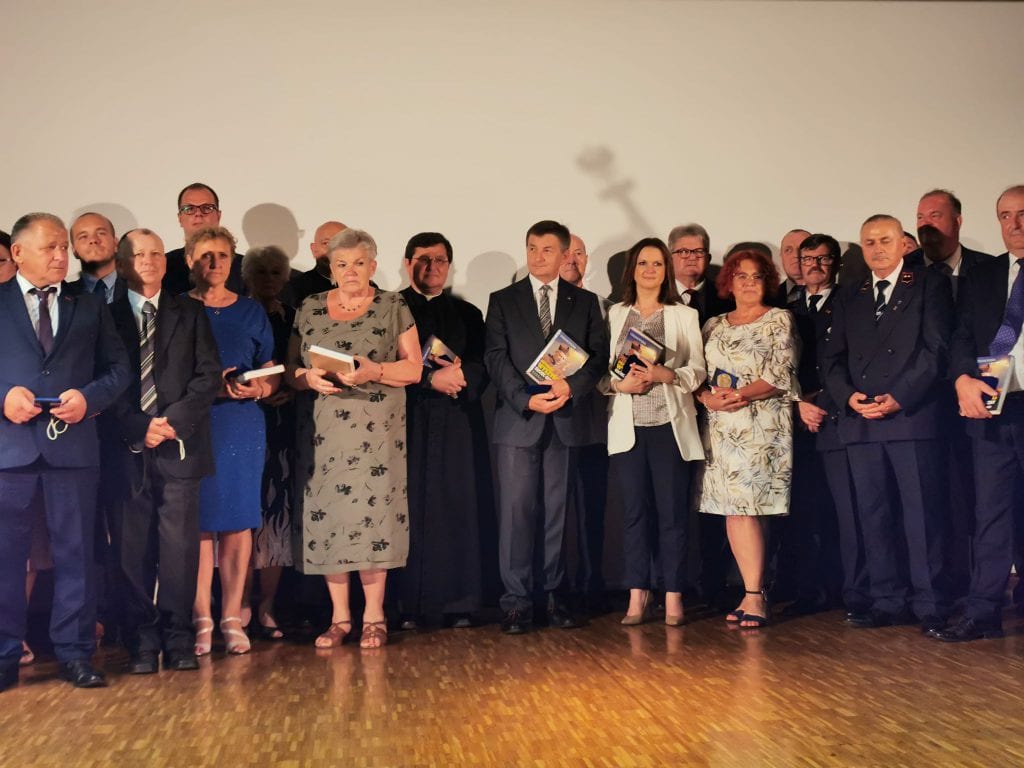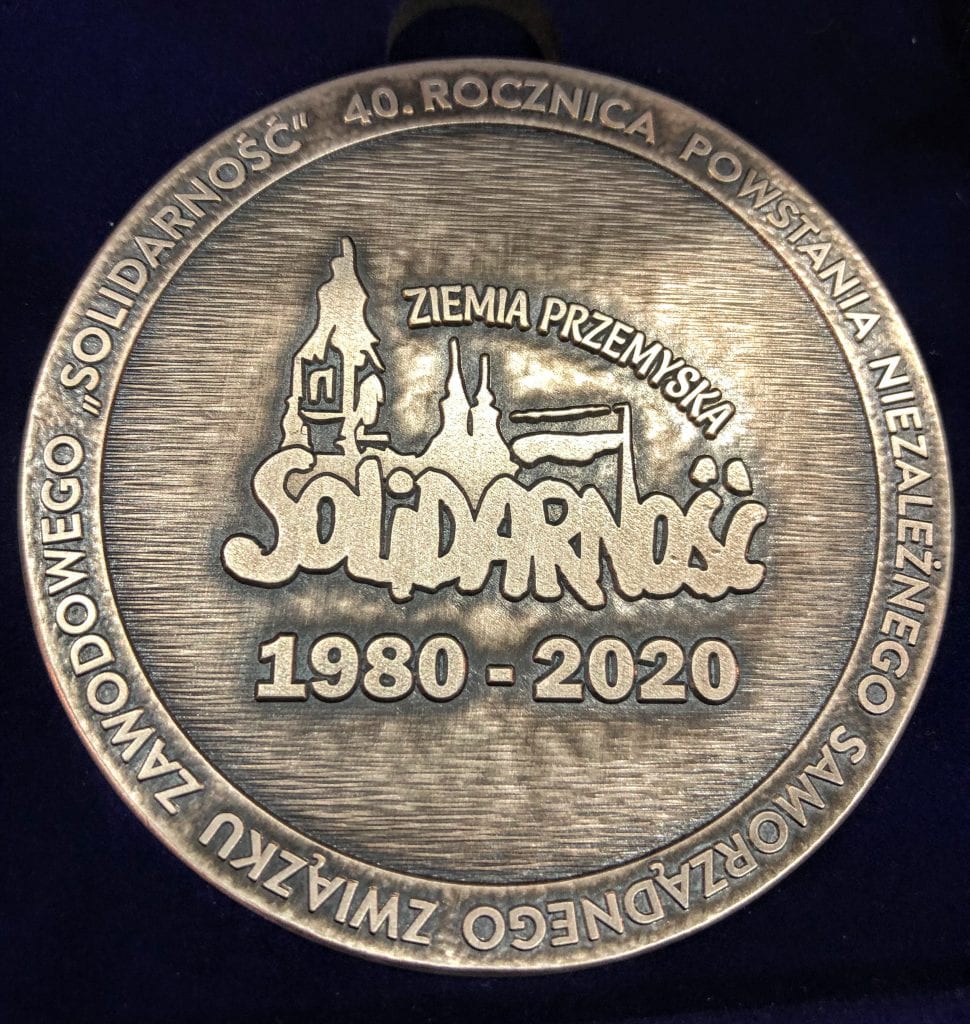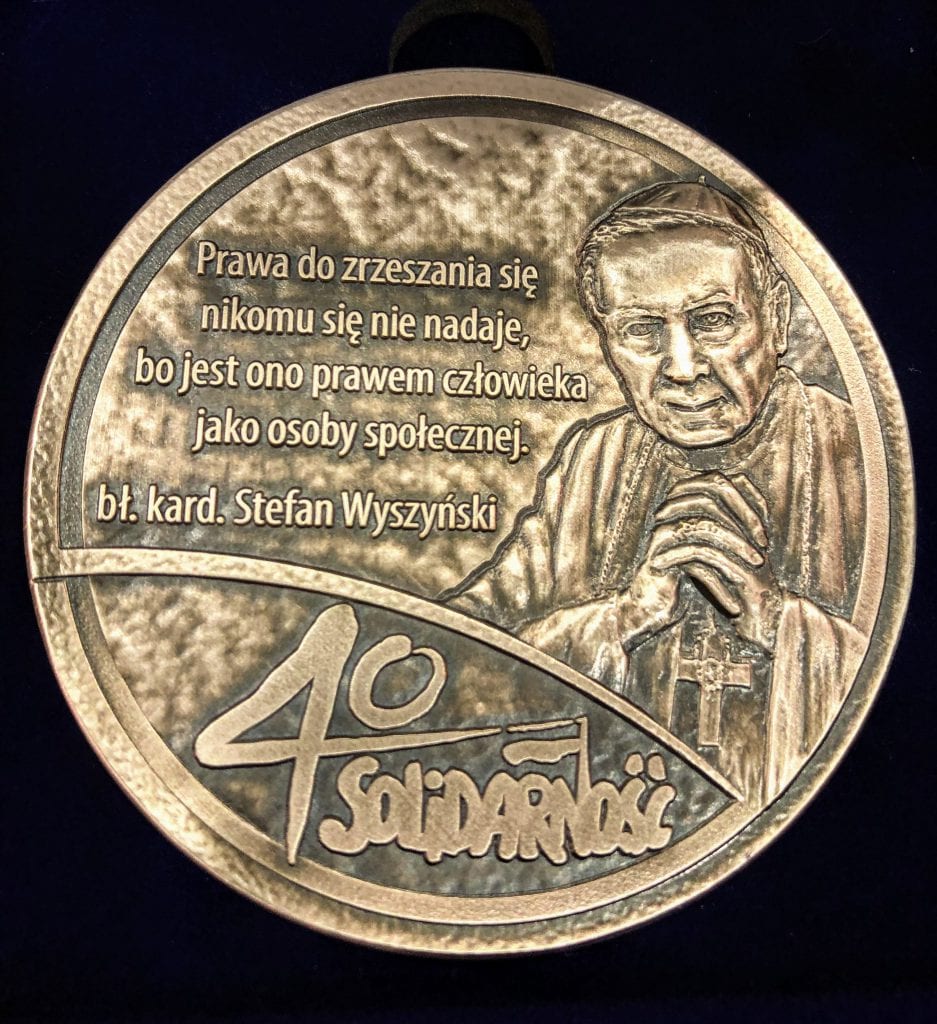On the 40th anniversary of the establishment of the Independent Self-Governing Trade Union "Solidarity" Marek Kuchciński commemorated this anniversary during the celebrations organized by the Solidarity of Przemysl. The memory of Blessed Father Jerzy Popiełuszko and John Paul II was also honored. Flowers were also laid at the commemorative plaque on Stone Bridge where the Board of the South-Eastern Region of NSZZ "Solidarity" had its seat. During the ceremony at the National Museum of the Przemysl Region he spoke about how he sees Solidarity - through the prism of great historical events and his own experiences. - For 40 years, the backbone of Solidarity has been the Trade Union, but if we look from a multi-generational perspective - historical and political - then Solidarity is the largest movement in Europe, encompassing all social and professional groups, as well as the entire country. In 1989, it set in motion the process of creating independent states in Poland, Hungary, and in two years in the Baltic States, a year before the Berlin Wall came down," said the Speaker of the Sejm.
Marek Kuchciński argued that he looks upon Solidarity as a movement that has accompanied us many times in our history - a great movement in defense of a reborn Poland, uniting the whole nation - as in 1920. According to the Marshal, the spirit of Solidarity also showed itself in 1944 during the Storm action and the persistent fight for independence. - This was not only a fight against the Germans, but also a demonstration to those coming from the east that there was a legal state authority within the borders of the Republic: the Polish Underground State and its armed arm - the Home Army of several hundred thousand people. From today's perspective, the Solidarity Movement is a vivid reminder of this. This is our national characteristic, a Polish characteristic, a characteristic of Central Europe," he said.
The Marshal emphasized that Eastern Poland had a significant contribution to the march towards freedom - it was initiated by strikes in Mielec and Sanok (beginning of July 1980), and then in Lublin and Świdnik. - It started here - in places that still adhere to tradition and values," Marek Kuchciński pointed out.
Solidarity owes much of its strength to the Church. According to the Marshal, the rock that moved the avalanche of change was the election of Karol Wojtyła as Holy Father.
Solidarity would also not exist without people like Anna Walentynowicz, Andrzej Gwiazda or Lech Kaczyński, the first deputy chairman of Lech Walesa. - He was the one who essentially led the union, and today we live in a country led by a group which he created and which implements the Solidarity programme. Lech Kaczyński is a man of Solidarity, who, according to the teachings of the Church, understood it also as the ability to share one's abilities with all those who need support," Kuchciński argued.
- We, the people who hold political office today, have grown out of the spirit of Solidarity and it is our duty to uphold and strengthen it, to introduce Solidarity into our everyday activities. I would like to thank all of the Solidarity presidents: workers, farmers, as well as those in the now free Poland," said the Speaker.
Marek Kuchciński was active in the Agricultural Solidarity. From the beginning of 1989 he was actively involved in the activity of the Civic Committee "Solidarity" in Przemyśl, of which he became a spokesman and co-founded the Civic Committee "Solidarity" in the Przemyśl voivodeship; 1990-1992 he was a member of the National Civic Committee "Solidarity" under Lech Wałęsa; 1990-1999 - a member and president of the voivodeship structures of the Agreement of the Centre.
The great Solidarity movement, which was an answer to the unforgettable call of John Paul II from Warsaw's Zwycięstwa Square and changed the "face of this land," was born in the city, in large industrial plants, but from the beginning it embraced the Polish countryside, subjected to socialist experiments during the communist era, according to the book Solidarity of Farmers 1980-1989. Solidarity became a nationwide uprising, encompassing all professional and social circles, including farmers, then called individual farmers, who fought the longest to have independent trade unions.
While appearing together with the urban Solidarity - workers', red, "big" - the green, "small", rural, peasants', farmers' Solidarity had its share both in widening the space of freedom during the "carnival" of 16 years 1980-1981, sustaining, with the help of the Church, the will to resist the system dying out after the introduction of martial law, and in the political changes initiated at the Round Table.
The village had a great burden, responsibility for building national identity and human dignity, and defending the land. It also defended against totalitarianism, gave support and shelter during World War II, e.g. to soldiers who were expelled.
